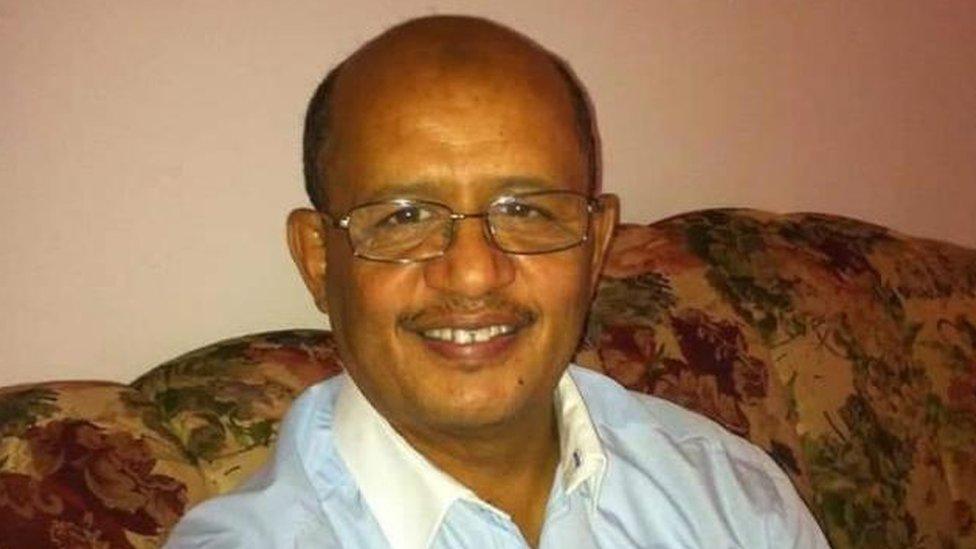Coronavirus: Ethnic breakdown of London deaths revealed
- Published
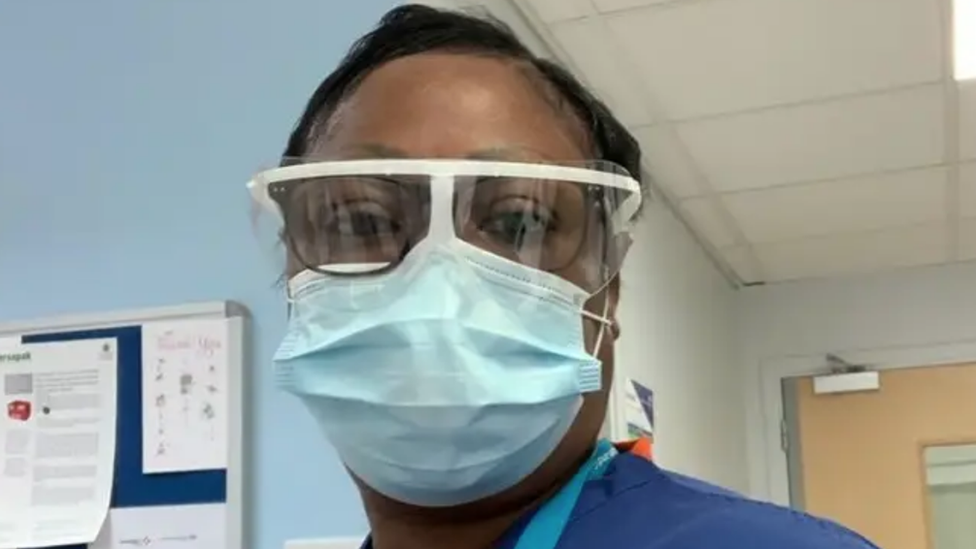
Samuel Akinsanya said his mum Esther Akinsanya was known as "nurse or matron" because she loved to care for people
New NHS data has revealed ethnic breakdowns among the patients in London hospitals who have died with coronavirus.
Black people account for 13% of the city's population but 16% of deaths.
Epidemiologist Dr Shikta Das said there was a high rate of ethnic minority people among front line workers, who were exposed to greater risk.
But Dr Das said it was difficult to draw conclusions as data needed to be more specific to areas of London.
London has seen nearly 5,000 deaths linked to the virus.
NHS data, obtained by the BBC, analysed 3,929 deaths by ethnicity and showed a disproportionate number of black people had died from Covid-19 in London hospitals.
The majority of the patients that died - 55% - were from a white background, but white people make up a larger proportion of the capital's population. Similarly, proportionately fewer Asian people died with coronavirus.
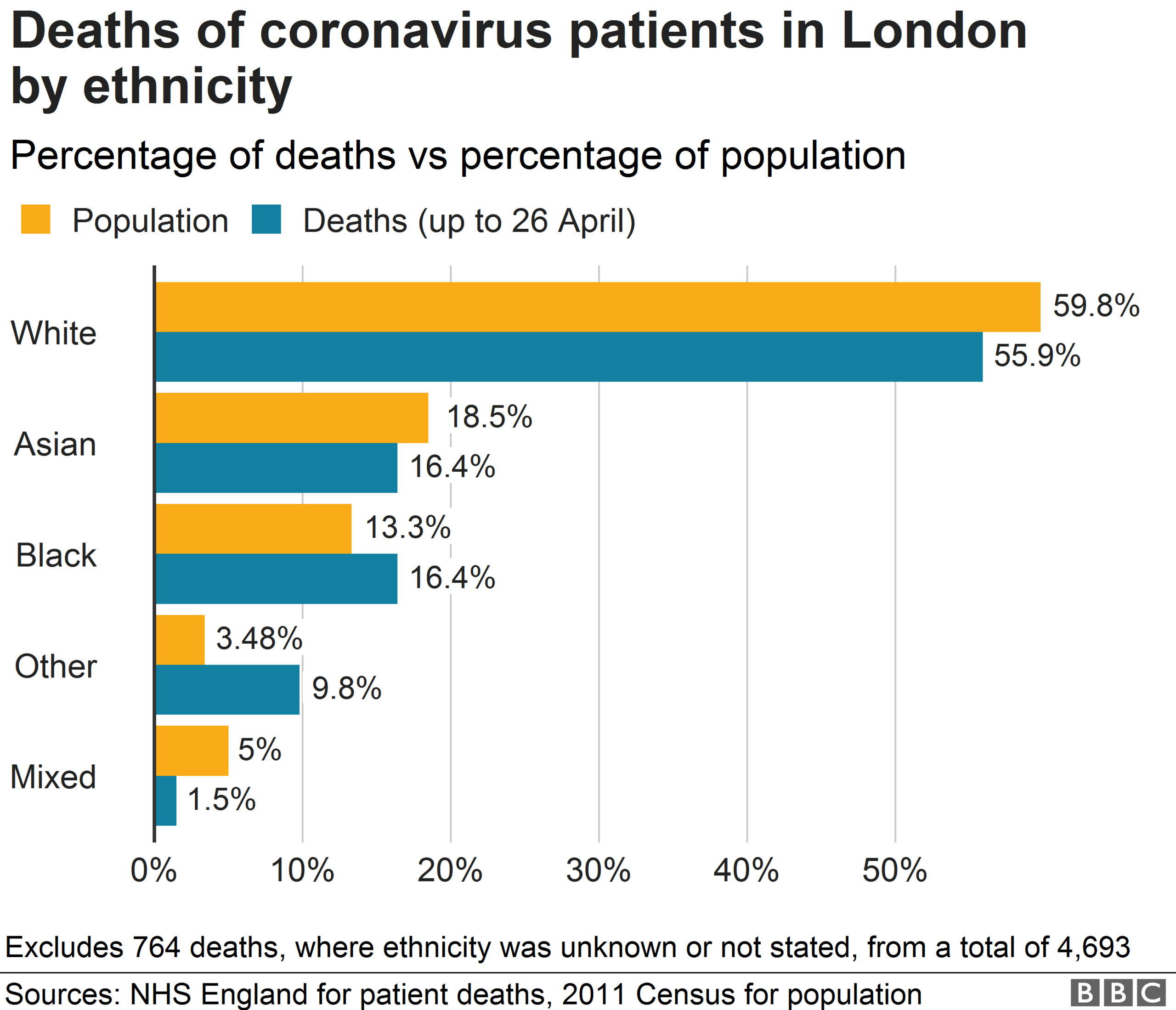
Dr Das said she believed one factor was that ethnic minorities were over-represented in many key worker industries and were at a greater risk of becoming infected.
"Viral load is how much you are exposed to an infectious disease," she explained.
"Twenty per cent of all NHS workforce are from an ethnic minority background. The figure for doctors is 44%.
"In this situation the BAME group is a doctor, a nurse, a technician, bus drivers, shelf stackers, care workers - all these groups of people are getting more exposed to Covid directly.
"Bus drivers were meeting people all of the time, doctors and nurses cannot care for a patient 2m away from them
"The more exposure you have the more lethal that dosage is. So it is no surprise that these people are dying"
Figures also showed that only 1.3% of London patients who died were under the age of 40, while 87% were aged at least 60 and just under half were 80 or older.
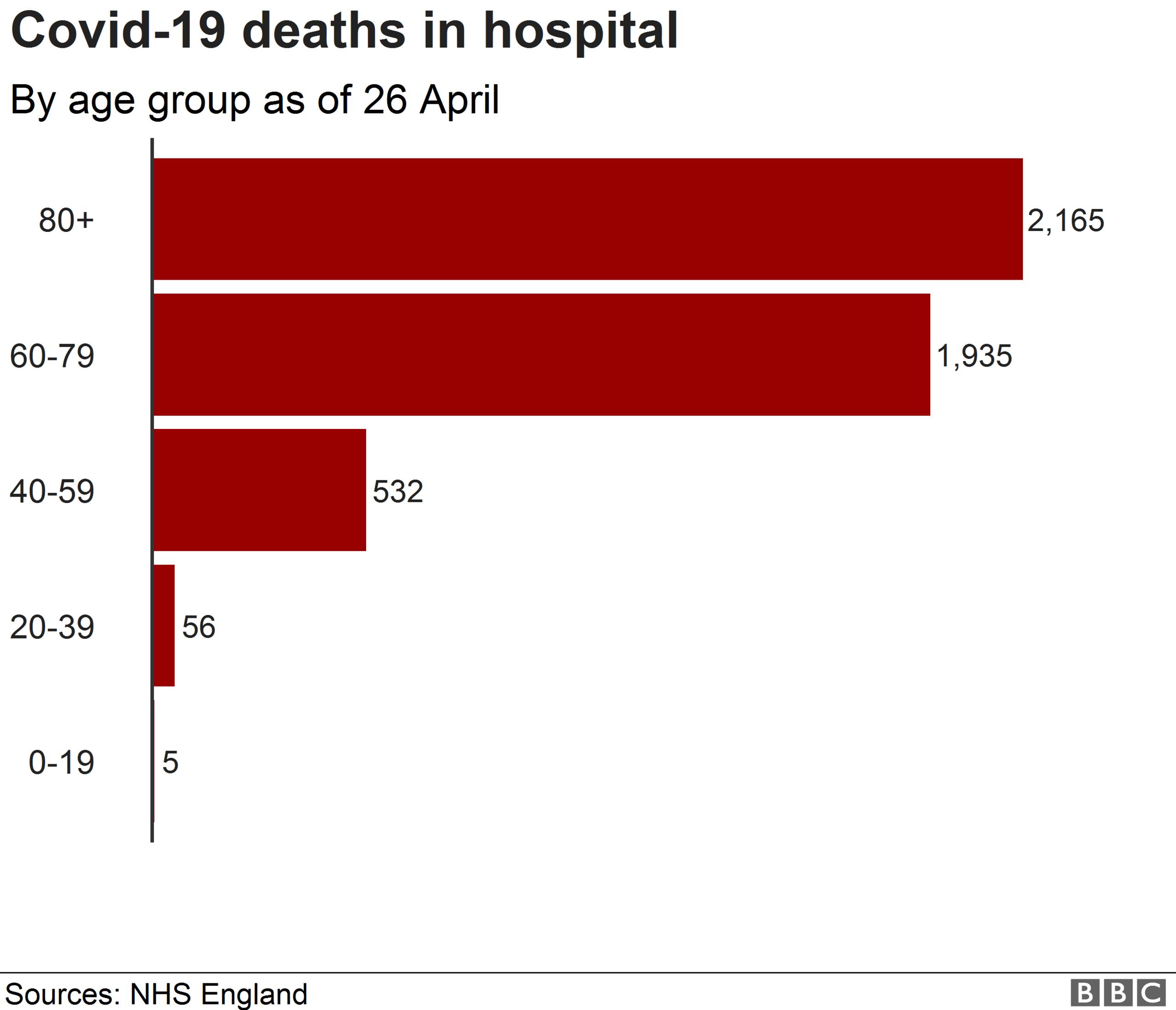
Among those to have become infected with coronavirus were two sisters, Esther Akinsanya and Mary Idowu.
On 11 April - and just hours apart - they were taken to the south-east London hospital they had both worked at for decades after showing symptoms.
Ms Akinsanya, who was born in Lagos in Nigeria but moved to the UK in the early 1990s, worked as a healthcare assistant at the Queen Elizabeth Hospital in Woolwich, along with Mary.
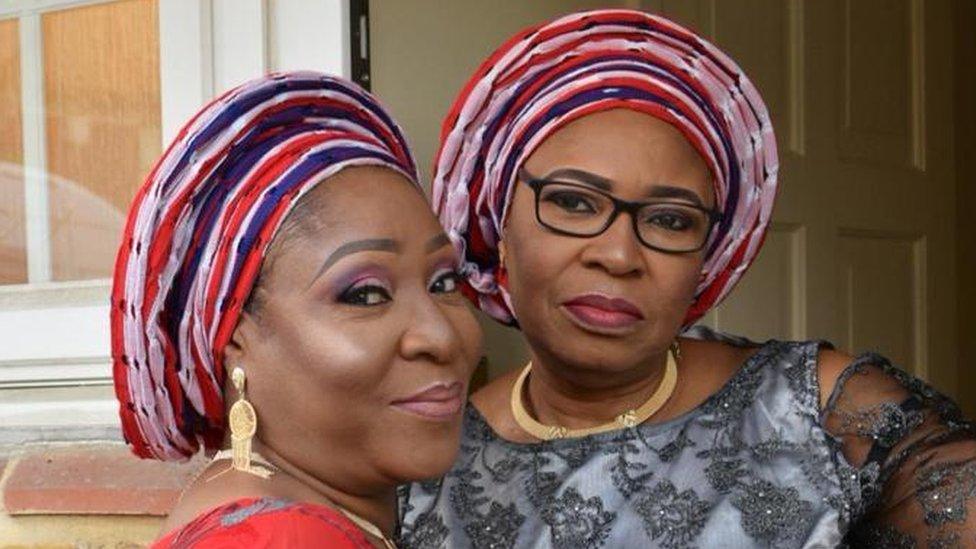
Samuel Akinsanya has set up a GoFundMe page which has raised more than £21,000 in memory of his mum Esther Akinsanya (left) and to help the recovery of her sister Mary Idowu (right)
Her son Samuel Akinsanya explained that despite his mother having no clear underlying health problems she succumbed to the virus and died suddenly.
"Even in her last words to me she was telling me to look out for my sister," he said. "She knew something was going on and that's what breaks my heart.
"That will always stick with me, but what has struck me since is just how well connected my mum was and how well respected she was.
"So, I need to be strong and continue her legacy."
Mr Akinsanya added: "Her mind was colossal, but what baffled me was seeing how she deteriorated so quickly.
"I've heard a lot about ethnic minorities being affected but it should not matter what skin colour or nationality people are.
"This virus is killing people and we need to look after our NHS and can't take it for granted."
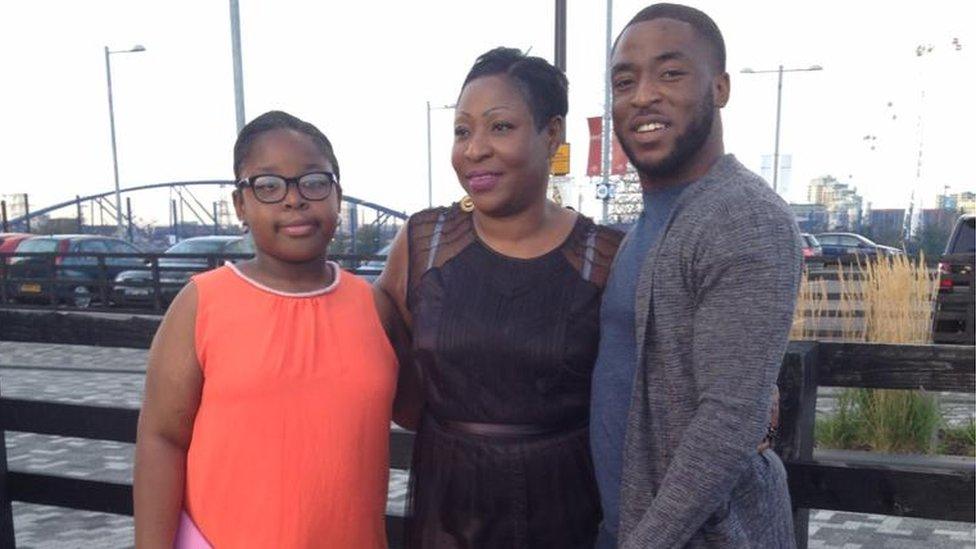
Samuel Akinsanya with his mum Esther and younger sister
A spokeswoman for Public Health England said there was "evidence to suggest" coronavirus was having a disproportionate impact on ethnic minority groups.
"There is limited recording of ethnicity across almost all data sets so we must be very careful in making any assumptions," she said.
"This is a really important issue and detailed and careful work is being done before we draw any conclusions."
A special programme looking at the impact of coronavirus across London and on NHS workers will be on BBC One in London at 18:30 BST.

A SIMPLE GUIDE: How do I protect myself?
AVOIDING CONTACT: The rules on self-isolation and exercise
HOPE AND LOSS: Your coronavirus stories
LOOK-UP TOOL: Check cases in your area
TESTING: Can I get tested for coronavirus?

- Published27 April 2020
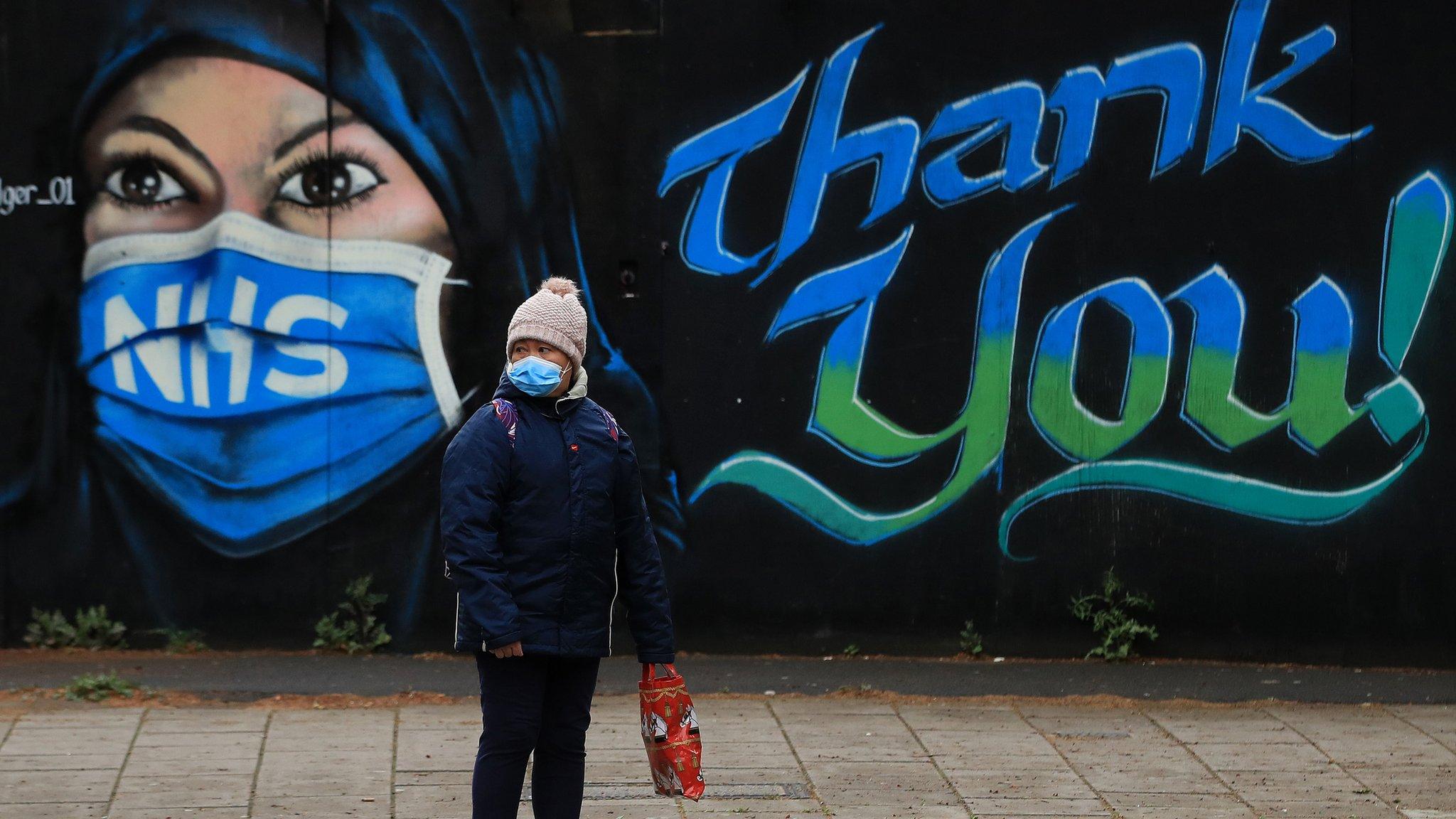
- Published12 April 2020
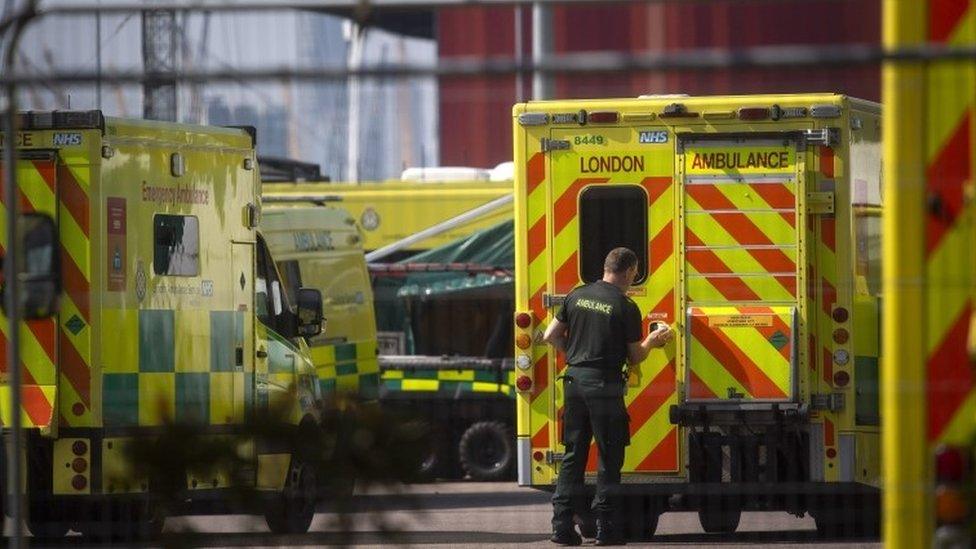
- Published28 March 2020
